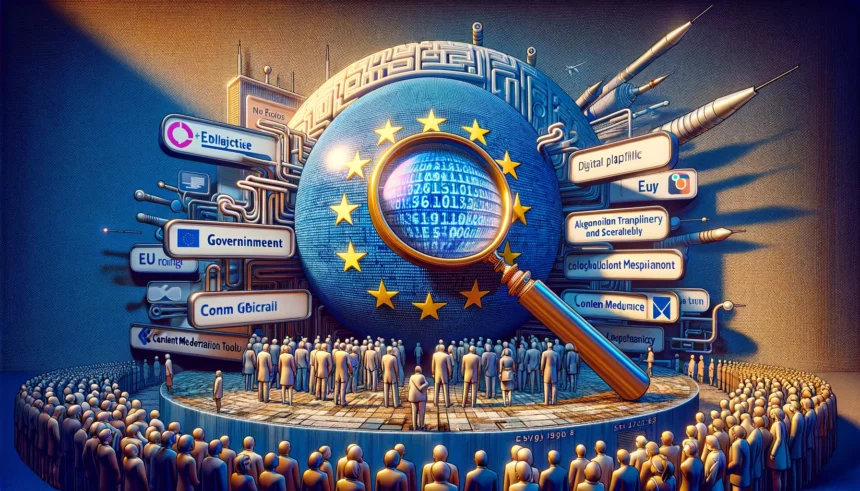In a significant move to fortify the foundations of democracy within its borders, the European Union has unveiled a comprehensive set of draft guidelines targeting the behemoths of the digital world. Released on Tuesday, these guidelines are specifically designed for the roughly two dozen platforms, including giants like Facebook, Google Search, Instagram, LinkedIn, TikTok, YouTube, and X, each boasting over 45 million monthly active users within the region. These platforms, by virtue of their massive reach and influence, fall under the rigorous scrutiny of the Digital Services Act (DSA), binding them to a series of obligations aimed at curbing systemic risks—most notably, the manipulation of information through means such as political deepfakes, all while ensuring the protection of pivotal rights such as freedom of expression and privacy.
The cornerstone of the EU’s strategy revolves around safeguarding the sanctity of elections—a domain identified as a critical priority for DSA enforcement. Platforms categorized as very large online platforms (VLOPs) and very large online search engines (VLOSEs) are now mandated to proactively identify and mitigate any threats that might compromise the democratic process, a task that extends well beyond mere compliance with online governance norms.
Central to the EU’s expectations is a significant ramp-up in the platforms’ content moderation capabilities, particularly in accommodating the linguistic diversity of the bloc. This entails having an adequate number of well-equipped staff to efficiently manage the information flow and address concerns flagged by third-party fact-checkers. Platforms that fail to meet these stringent demands risk facing substantial penalties.
A delicate balance is required in moderating political content. Platforms must navigate the thin line separating protected political satire from malicious disinformation aimed at swaying electoral outcomes. Under the DSA, the latter is classified as a systemic risk necessitating immediate and effective mitigation measures. The guidelines underscore the need for actions that are “reasonable, proportionate, and effective,” keeping in view the broader implications for electoral integrity.
With the clock ticking towards the European Parliament elections in June, the EU is not leaving anything to chance. A consultation on the draft guidelines was swiftly launched last month, underscoring the urgency of ensuring platform readiness. The next month is slated for stress-testing platform preparedness, a clear indication of the EU’s proactive stance in ensuring compliance.
An innovative aspect of the EU’s guidance is the emphasis on user autonomy concerning algorithmic and AI-driven content recommendation systems. Platforms are encouraged to design these systems in ways that offer users meaningful control over their feeds, thus mitigating the risk of information manipulation during elections. Moreover, there’s a push for greater transparency and accountability in how these algorithms function, including the responsible labeling of AI-generated content, such as deepfakes.
Beyond the technical and operational directives, the EU’s guidance places a strong emphasis on the need for platforms to enhance their internal processes and resources tailored to election-specific threats. This involves a comprehensive approach to understanding and mitigating local and regional risks, underpinned by a robust content moderation framework that leverages local expertise and language capabilities.
The draft guidelines are just the beginning. Formal adoption is anticipated in April, following the completion of all language versions. This move by the EU represents a significant step towards ensuring the integrity of elections in the digital age, setting a precedent for how technology giants are expected to contribute to the preservation of democratic processes. In the lead-up to the European Parliament elections, the guidelines serve as a crucial framework for platforms, offering a detailed blueprint for navigating the complex interplay between technology, information, and democracy.
















